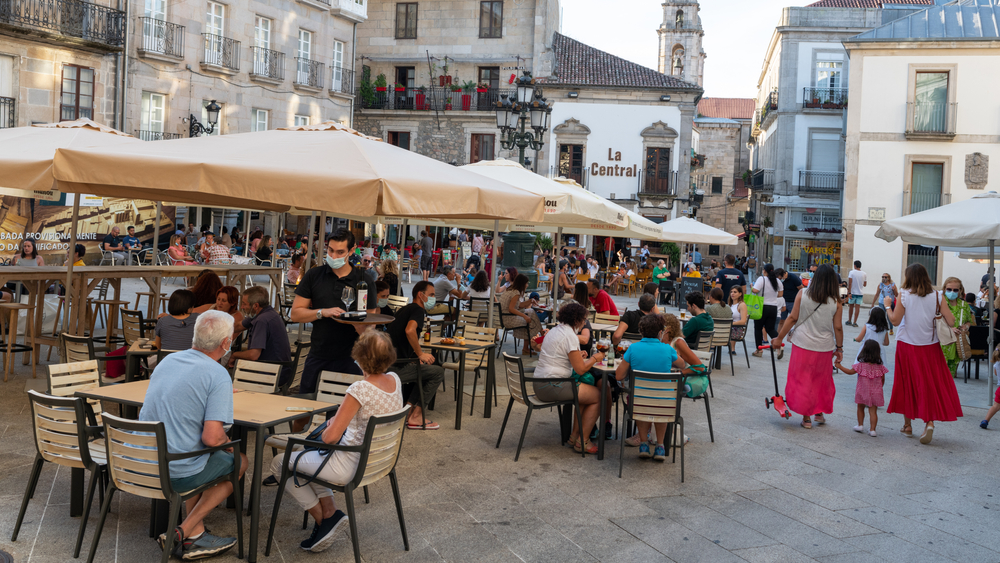Part of the Food Policy Snapshot Series
Policy name: Plan de Refuerzo (“Reinforcement Plan”)
Overview: In December 2020 Spain passed a COVID-19 relief plan for businesses in the hospitality industry that includes requiring landlords cut rent by 50 percent for many restaurants and bars.
Location: Spain
Population: 46.8 million
Food policy category: Food service
Program goals: To support restaurants and bars that have been struggling due to COVID-19 pandemic restrictions.
How it works: The relief package includes a variety of measures meant to help hospitality business owners increase their liquid assets:
- Landlords who own more than 10 business properties and have not already provided temporary discounts to tenants must decrease the rent they are charging by 50 percent until the national state of emergency is lifted. Those landlords who have already reduced rents for January, February, and March 2021 may deduct the amount of the reduction from their tax filings. The rent cuts alone will have a positive economic impact of 2.6 billion euros ($3.18 billion).
- Restaurant owners will now have eight years instead of five to pay back loans to the Official Credit Institute (ICO).
- Tax payments may be deferred up to six months, from April to October 2021, up to a maximum of 30,000 euros (approximately $37,000).
Progress to date: The Spanish government had been considering various relief plans for months before approving the Plan de Refuerzo.
Why it is important: Spain is known for its nightlife, including late-night dining, which means that curfews and other dining restrictions imposed because of the pandemic have forced the Spanish people to change their culture. As a result, the restaurant sector lost 50 percent of its revenue, amounting to 60 billion euros ($73.3 billion). Between 85,000 and 100,000 establishments were forced to close in 2020, and more than half of restaurant sector workers lost their jobs or were at risk of losing them.
The Plan de Refuerzo is intended to relieve some of these financial burdens and reinvigorate the hospitality industry.
Program/Policy initiated: The plan passed on December 22, 2020.
Point of contact: N/A
Similar practices: No other countries have reported taking similar measures.
Evaluation: While no official evaluation has yet taken place, some business owners have said that the relief is insufficient or coming too late.
Learn more:
- Assessing the Impact of the COVID-19 Pandemic in Spain: Large-Scale, Online, Self-Reported Population Survey (Journal of Medical Internet Research)
- COVID-19 Cripples Global Restaurant and Hospitality Industry (Current Issues in Tourism)
- How COVID-19 is Changing Spain’s Hospitality Sector (Foodservice Consultants Society International)
- Spain’s Economy Will Shrink More than Most in 2020, Says IMF (El País)
- Spain’s Catalonia Orders Rent Cuts for COVID-hit Bars and Restaurants (Reuters)
References:
- Famous for Late-Night Dining, Spain’s Restaurant Scene Is Very Different Now (Fodors)
- Government Announces €4.2 Billion Relief For Tourist Sector & Restaurants (Madrid Metropolitan)
- Spain Approves Relief Package for Struggling Hospitality Businesses (El País)
- Spain Enters Six-Month State of Emergency to Tackle Pandemic (Reuters)
- Spain Moves to Slash Rents for Struggling Bars and Restaurants (Reuters)
- Spain Prepares Support Package to Aid Bars and Restaurants Hit by Coronavirus Crisis (El País)
- Spanish Restaurant Sector Decimated In 2020 (Madrid Metropolitan)
- ‘Too Little, Too Late’: Spain’s Plan to Help Struggling Restaurants and Bars Slammed (The Local)


